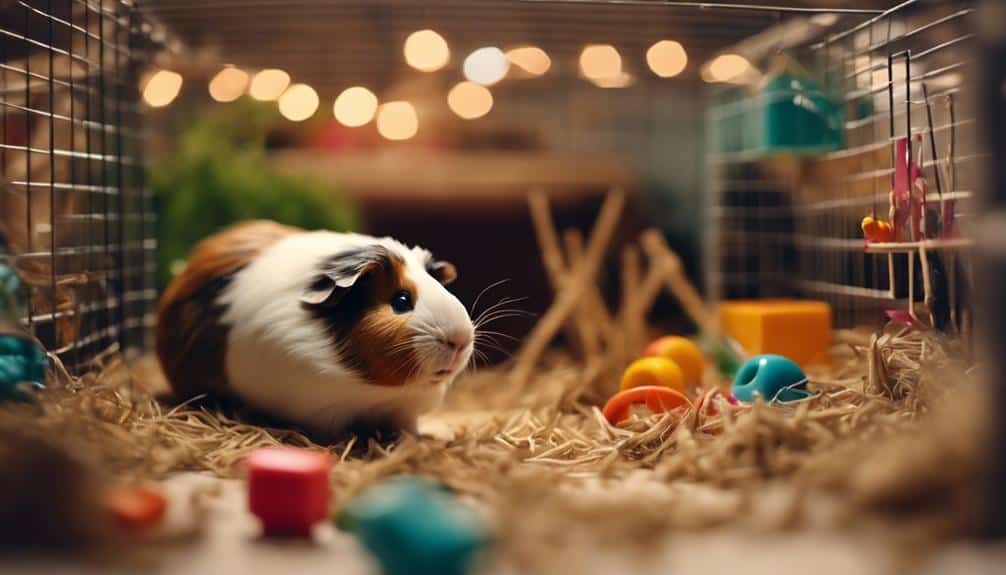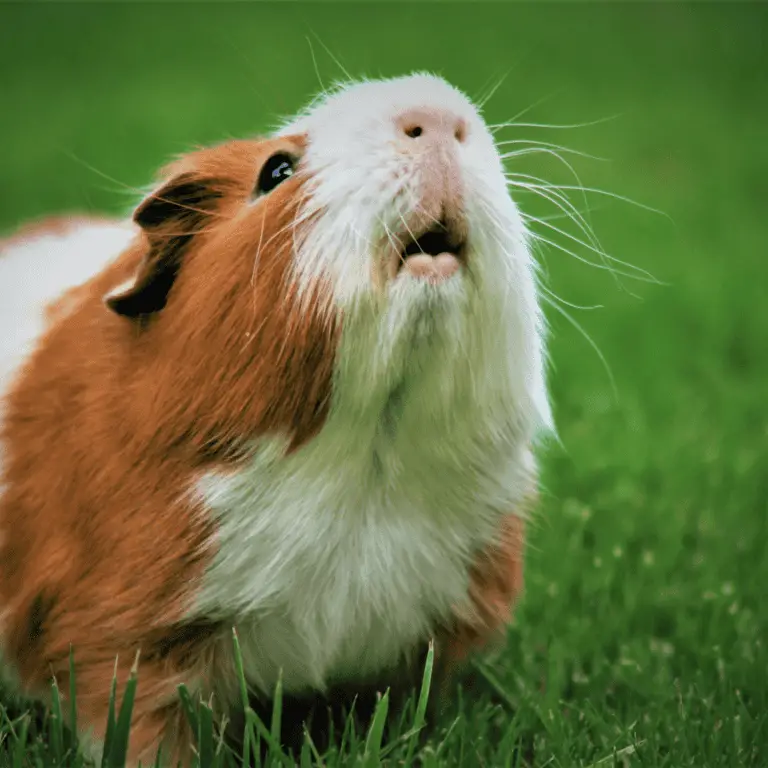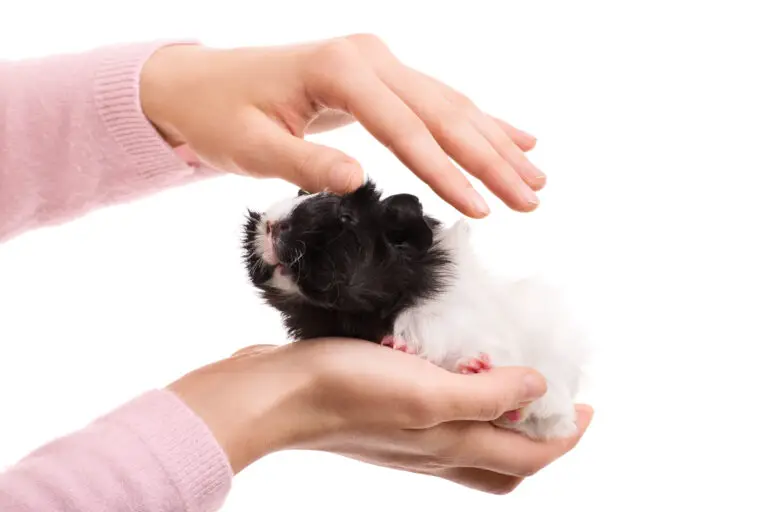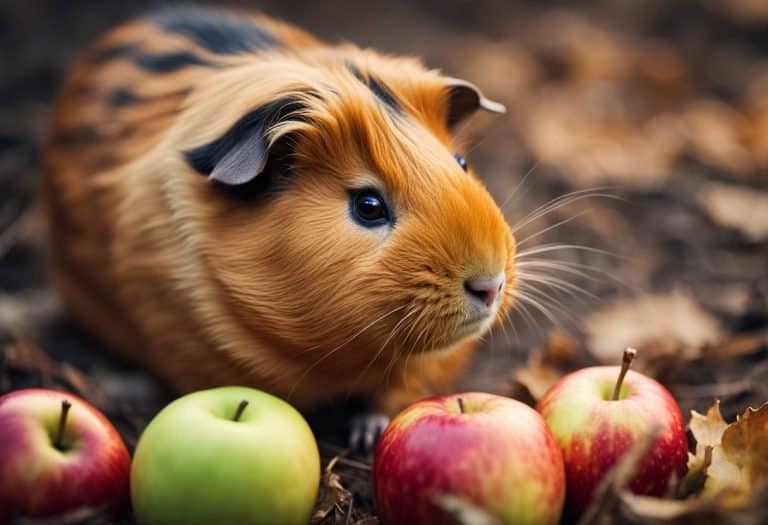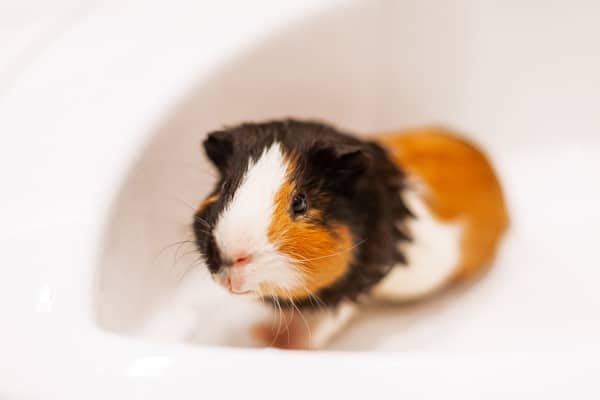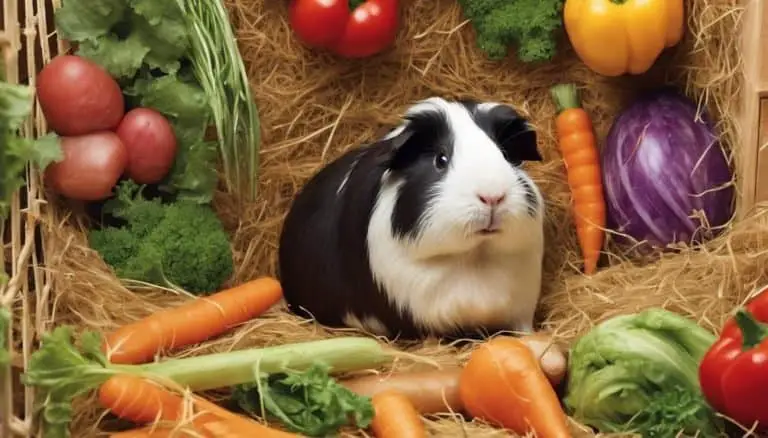How Long Do Guinea Pigs Live Indoors: A Complete Guide
When considering caring for guinea pigs indoors, one might question the longevity these adorable pets can achieve. Understanding the lifespan of guinea pigs in indoor settings involves various essential factors that need careful consideration.
From suitable environments to proper diet and healthcare, ensuring a guinea pig’s well-being requires attention to detail. But what exactly impacts how long these furry companions thrive within our homes?
Let’s explore the important aspects that contribute to the lifespan of guinea pigs living indoors.
Guinea Pig Lifespan Indoors
How long can guinea pigs typically live indoors with proper care and environment?
Guinea pigs have an average lifespan of 5-7 years when kept indoors under suitable conditions. Factors such as diet, exercise, genetics, and overall health play important roles in determining a guinea pig’s longevity in an indoor setting.
Providing a balanced diet rich in vitamin C, fresh hay, vegetables, and pellets, along with ample opportunities for exercise, is essential for maintaining their health and extending their lifespan. Regular veterinary check-ups are also essential to catch any potential health issues early on and guarantee prompt treatment.
Creating a clean, spacious, and enriched living environment with hiding spots, toys, and social interaction can greatly contribute to a guinea pig’s wellbeing and longevity indoors. Monitoring for signs of illness, such as changes in appetite, behavior, or unusual discharge, is important for early intervention and maintaining the overall health of guinea pigs in an indoor setting.
Factors Affecting Guinea Pig Longevity
Factors that influence the longevity of guinea pigs living indoors include proper nutrition, housing, healthcare, stress levels, social interaction, mental stimulation, veterinary care, and environmental conditions.
Providing a balanced diet rich in vitamin C, fresh hay, vegetables, and limited pellets can have a substantial impact on a guinea pig’s lifespan, which typically ranges from 4 to 8 years when kept indoors.
Creating stress-free environments with ample space, hiding spots, and opportunities for exercise and play can help maintain their overall well-being. Social interaction with humans and other guinea pigs, along with mental stimulation through toys and activities, are essential for their mental health and duration of life.
Regular veterinary check-ups, early detection of illnesses, and appropriate medical care are critical to extending a guinea pig’s lifespan. Ensuring a safe living space with proper temperature, humidity levels, ventilation, and cleanliness further contributes to their health and duration of life indoors.
Monitoring these factors diligently can positively impact the lifespan of guinea pigs in your care.
Common Health Issues in Guinea Pigs
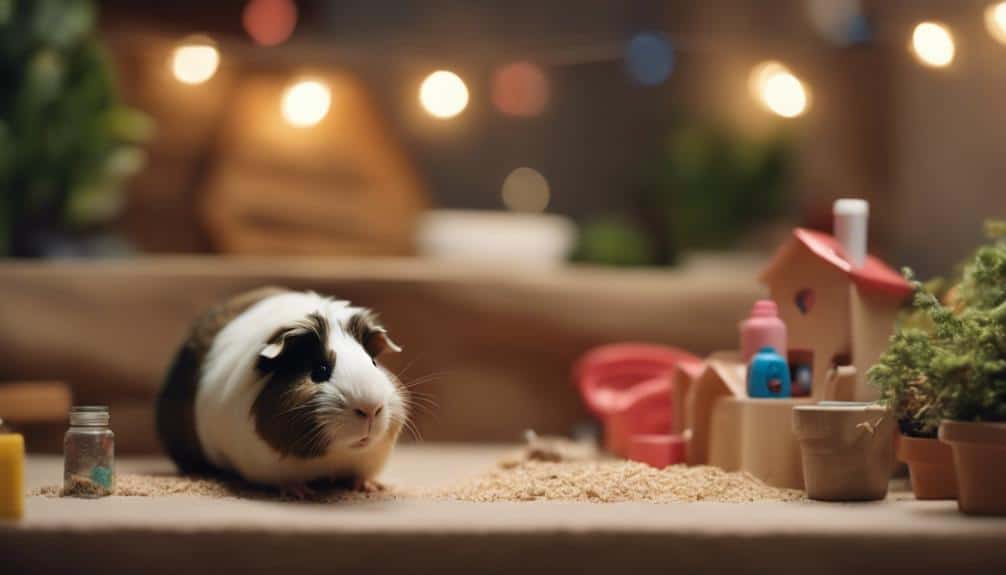
Common health issues in guinea pigs often encompass dental problems, respiratory infections, skin conditions, gastrointestinal issues, and vitamin C deficiency leading to scurvy. Dental problems like overgrown teeth and malocclusion can hinder a guinea pig’s ability to eat and lead to further complications if left untreated.
Respiratory infections, including pneumonia and upper respiratory infections, are prevalent and can be triggered by factors like poor ventilation or exposure to drafts. Skin conditions such as mites, fungal infections, and abscesses may arise, requiring veterinary care for proper treatment.
Gastrointestinal problems like bloat, diarrhea, and constipation are also common and can be caused by dietary issues or infections. Vitamin C deficiency is a critical health concern in guinea pigs, as they can’t produce this essential nutrient themselves. Ensuring a guinea pig’s diet includes sufficient vitamin C is important to prevent the development of scurvy, a condition that can severely impact their overall health and well-being.
Regular monitoring and prompt intervention are important in maintaining the health and happiness of these adorable pets.
Tips for Increasing Guinea Pig Lifespan
To enhance the lifespan of indoor guinea pigs, it’s essential to provide a well-rounded diet consisting of hay, fresh vegetables, and limited pellets. Here are some key tips for increasing your pet guinea pig’s lifespan:
- Guarantee Adequate Vitamin C: Guinea pigs need vitamin C in their diet as they can’t produce it on their own. Include vitamin C-rich foods like bell peppers, kale, and strawberries to prevent scurvy and boost their immune system.
- Create a Comfortable Living Environment: Guinea pigs are social animals that require a spacious cage with proper bedding for nesting and play. A clean and hygienic environment reduces the risk of diseases and helps them thrive.
- Regular Veterinary Check-Ups: Routine check-ups and prompt medical attention are pivotal for maintaining your guinea pig’s health and catching any issues early on.
- Provide Mental Stimulation and Exercise: Guinea pigs are social creatures that benefit from interaction, toys, and supervised playtime outside the cage to stay mentally and physically active, promoting a longer and happier life indoors.
Monitoring Your Guinea Pig’s Well-Being
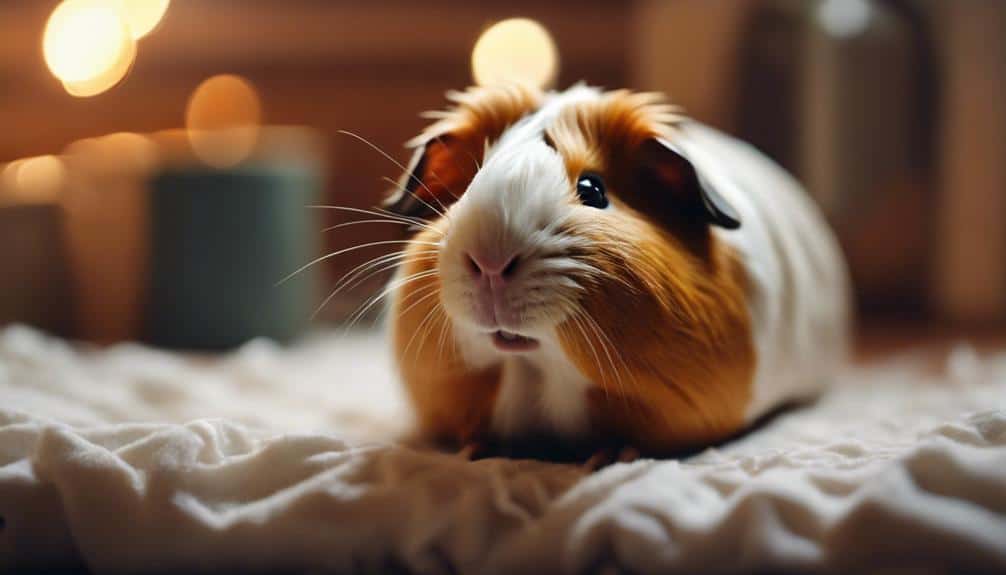
Regularly monitoring your guinea pig’s weight is vital to guaranteeing they maintain a healthy size and overall well-being. Sudden weight loss or gain can be a sign of underlying health issues, so it’s important to track your guinea pig’s weight fluctuations. Additionally, keep a close eye on changes in their eating habits or appetite. Any significant shifts in their food consumption could indicate a potential health concern that requires veterinary attention.
Observing your guinea pig for any unusual behaviors is also key to monitoring their well-being. Signs of distress, such as excessive hiding, lethargy, or aggression, shouldn’t be ignored. Moreover, regularly inspect your guinea pig’s coat for abnormalities like bald patches, flakiness, or excessive shedding. Any coat irregularities could be indicative of skin problems or parasites that need to be addressed promptly.
Remember to schedule routine veterinary check-ups to address any health concerns and ensure your indoor guinea pig’s well-being is maintained at peak levels. Regular monitoring and proactive care are essential in providing a happy and healthy life for your guinea pig.
Conclusion
To summarize, by providing proper care, attention, and a suitable environment, guinea pigs can live happily indoors for a significant amount of time. Monitoring their well-being regularly and addressing any health issues promptly can help increase their lifespan.
Remember, the key to ensuring a long and healthy life for your guinea pig is being proactive and dedicated to their care. So, let’s continue to cherish our furry friends and give them the love and attention they deserve.

